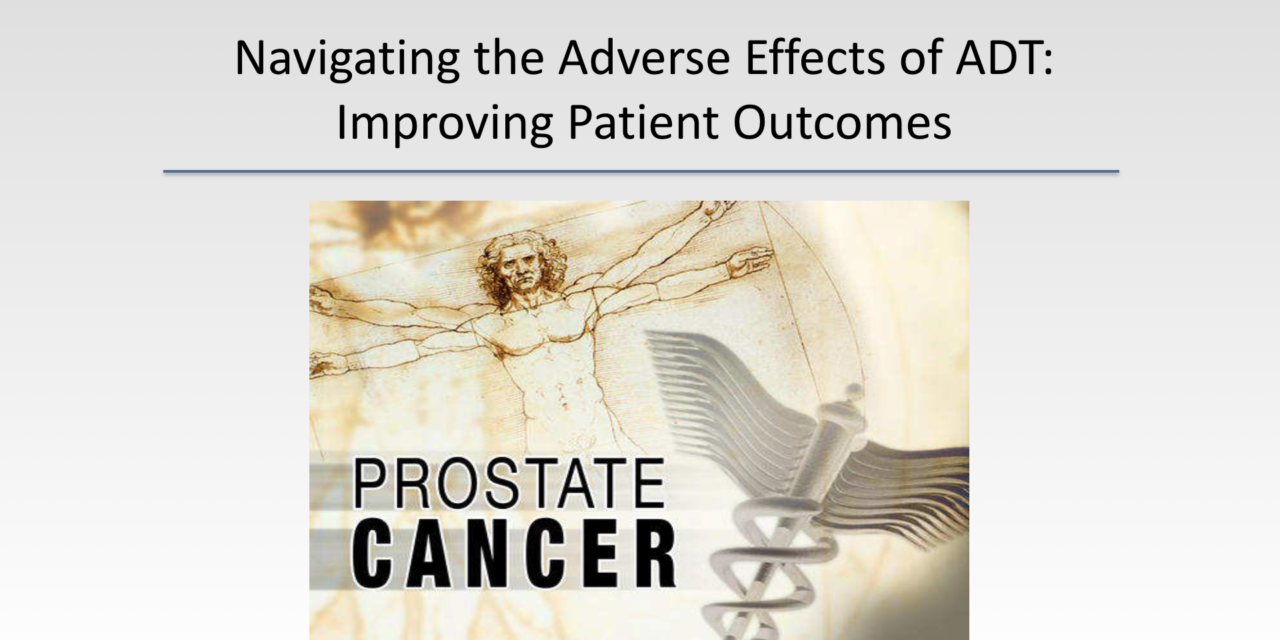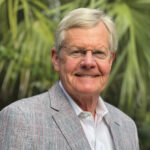Expiration date: May 25, 2018
Prostate cancer (PCa) is associated with the second highest number of cancer related deaths in men, second only to skin cancer. It is the most commonly diagnosed problem with the genitourinary tract and approximately one in six men will be diagnosed with PCa in his lifetime. According to the American Cancer Society, it is estimated that there will be 180,890 new cases of prostate cancer, and about 26,120 deaths from prostate cancer in 2016.
A major debate in the use of ADT is whether intermittent or continuous therapy is the best for prostate cancer patients. In a meta-analysis published in late 2015, data from 15 clinical trials that compared intermittent and continuous ADT and found no significant difference in overall survival, cancer-specific survival, PFS, and quality of life was slightly improved with intermittent ADT. Other studies and analyses argue that the differences do not merit a change from the standard treatment, rendering the use of intermittent ADT investigational. The contradictory results of different studies of continuous to intermittent ADT, this debate leaves the best course of action uncertain for now.
This educational program will equip urologists, medical oncologists, radiation oncologists, and other healthcare providers involved in the treatment of patients who might undergo or have undergone androgen deprivation therapy (ADT) with the up-to-date clinical knowledge and tools they need to best diagnose and treat their patients and adverse effects they may face.
Learning Objectives
- Evaluate the recommendations for current use and mechanisms of actions of ADT options for prostate cancer treatment
- Identify the effects of ADT on quality of life
- Address the impact of ADT on bone loss and related side effects
- Assess the research evidence showing cardiovascular and metabolic risks caused by ADT therapy in advanced prostate cancer patients
Target Audience
The intended audience for this activity is urologists, medical oncologists, radiation oncologists, and other healthcare providers involved in the treatment of patients who might undergo or have undergone androgen deprivation therapy (ADT).
Providership and Accreditation Statement
This activity has been co-provided by the Medical College of Wisconsin and Carden Jennings Publishing, Co., Ltd.
The Medical College of Wisconsin is accredited with commendation by the Accreditation Council for Continuing Medical Education to provide continuing medical education for physicians.
AMA Credit Designation
The Medical College of Wisconsin designates this activity for a maximum of 1.5 AMA PRA Category 1 Credit(s)™. Physicians should claim only the credit commensurate with the extent of their participation in the activity. This enduring material is approved for 1 year from the date of original release, May 25, 2017 to May 25, 2018.
Faculty and Planner Disclosures
In accordance with the Accreditation Council for Continuing Medical Education’s Standards for Commercial Support, all CME providers are required to disclose to the activity audience the relevant financial relationships of the planners, teachers, and authors involved in the development of CME content. An individual has a relevant financial relationship if he or she has a financial relationship in any amount occurring in the last 12 months with a commercial interest whose products or services are discussed in the CME activity content over which the individual has control. Relationship information appears below:
E. David Crawford, MD discloses the following relevant financial relationships:
- Served as a consultant or advisor for: Dendreon, Ferring, Genomic Health, Janssen, MDx
- Served as a consultant or advisor, meeting participant or lecturer for: Bayer
- Received grants for clinical research from: NIH, University of Colorado Cancer Center
- His wife is an employee of Dendreon
Thomas E. Keane, MBBCh discloses the following relevant financial relationships:
- Served as a consultant for: Bayer, Ferring, Janssen
Jehonathan H. Pinthus, MD, PhD discloses the following relevant financial relationship:
- Served as a speaker for: Ferring
Neal D. Shore, MD discloses the following relevant financial relationships:
- Served as a consultant for: Amgen, AbbVie, Astellas, Bayer, Dendreon, Ferring, Janssen, Medivation, Sanofi, Tolmar
The educational content of this program has been peer reviewed by The Medical College of Wisconsin. The Medical College of Wisconsin and Carden Jennings Publishing report the following relationship(s): No relevant financial relationships to disclose. Signed disclosures are on file at The Medical College of Wisconsin.
Unlabeled and Investigational Usage
The audience is advised that this continuing education activity may contain references to unlabeled uses of FDA-approved products or to products not approved by the FDA for use in the United States. The faculty members have been made aware of their obligation to disclose such usage.
Disclaimer
The material presented at or in any Medical College of Wisconsin or Carden Jennings Publishing Company, Ltd. continuing education activity does not necessarily reflect the views and opinions of Medical College of Wisconsin or Carden Jennings Publishing. Neither Medical College of Wisconsin or Carden Jennings Publishing, nor the faculty endorse or recommend any techniques, commercial products, or manufacturers. The faculty/authors may discuss the use of materials and/or products that have not yet been approved by the U.S. Food and Drug Administration. All readers and continuing education participants should verify all information before treating patients or utilizing any product.
This activity is supported by an educational grant from Ferring Pharmaceuticals, Inc.
ABOUT THE AUTHOR
Researcher-physician E. David Crawford, MD, Jack A. Vickers Director of Prostate Research and Professor of Urology at the University of California, San Diego, has devoted his career in medicine to educating the public about men's health issues and finding effective techniques and procedures to address prostate cancer, the most common malignancy affecting men in the United States.


